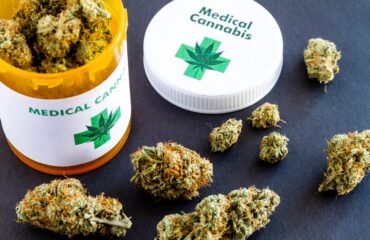A Time of Celebration and Hope
In Memorium: Christopher Kennedy Lawford, 33 years sober.
While recovery should be celebrated every day, September is the 29th Annual National Recovery Month to remind us of the importance of this issue in our communities. We ask local policy makers to sign proclamations to demonstrate a commitment to improving access to treatment programs for mental and/or substance use disorders. According to the Substance Abuse and Mental Health Services Administration (SAMHSA), the “[m]onth celebrates individuals throughout the country who have achieved long-term recovery from mental and substance use disorders and recognizes the contributions of the dedicated men and women who provide treatment and recovery services.”

SAMHSA reports that approximately 21 million Americans ages 12 and up dealt with a substance use disorder in 2014, and that was before the opioid epidemic. SAMSHA also reports “about 44.7 million Americans aged 18 and older experienced a mental disorder. In addition, an estimated 2.6 million adults aged 18 or older had co-occurring serious mental illness and substance use disorder.”
The triple message for Recovery Month is:
- Prevention works.
- Treatment is effective.
- People can and do recover.
People in long-term recovery tell their story best. Greg Williams stopped using alcohol and other drugs when he was only 17-years-old. You can see his story here.
The Betty Ford Center defines recovery as “[a] voluntarily maintained lifestyle characterized by sobriety, personal health and citizenship.” Recovery is clearly more than the absence of alcohol or other drugs in one’s life. Watching people work to complete a drug treatment court or a behavioral health court program reveals how difficult a struggle it is. The road to recovery is seldom a straight path but, rather, one filled with twists and turns, potholes and distractions.
Relapse prevention is often part of treatment’s curriculum and for good reason. While using is part of relapse, it is not uncommon for use episodes to occur. If that happens, it is imperative that corrective action be taken immediately and that the person return to treatment and follow their recovery plan.
Actress Kristen Bell publicly celebrated her husband’s 14 years of recovery on Instagram recently. She said, “…I know how much you loved using. I know how much it got in your way. And I know, because I saw, how hard you worked to live without it.” And it is difficult to find a family that is not touched by substance use disorders or mental health issues. When family members are supportive of their loved one’s recovery, outcomes are usually better. SAMHSA has a free booklet for family members of people with substance use disorders. Hazelden, a well-known recovery corporation, has developed “Nine Strategies for Families Helping a Loved One in Recovery.”
They are:
- Help your loved one follow all treatment recommendations.
- Encourage total abstinence from alcohol and other drugs
- Help your loved one build good coping skills
- Reduce family friction and provide social support
- Encourage participation in peer support groups
- Help your loved one create a sober peer network
- Know the signs of relapse
- Support your loved one’s involvement in meaningful, structured activities
- Keep hope alive
While we celebrate the 23 million+ Americans living in recovery, we must not lose sight of those still struggling with these disorders who are losing their lives every day. Last year more than 72,000 people died from opiate overdoses. When you add in deaths caused by alcohol and impaired driving crash statistics, there is much to mourn. How will you recognize and celebrate Recovery Month?
Get more articles like this
in your inbox
Subscribe to our mailing list and get the latest information and updates to your email inbox.
Thank you for subscribing.
Something went wrong.






